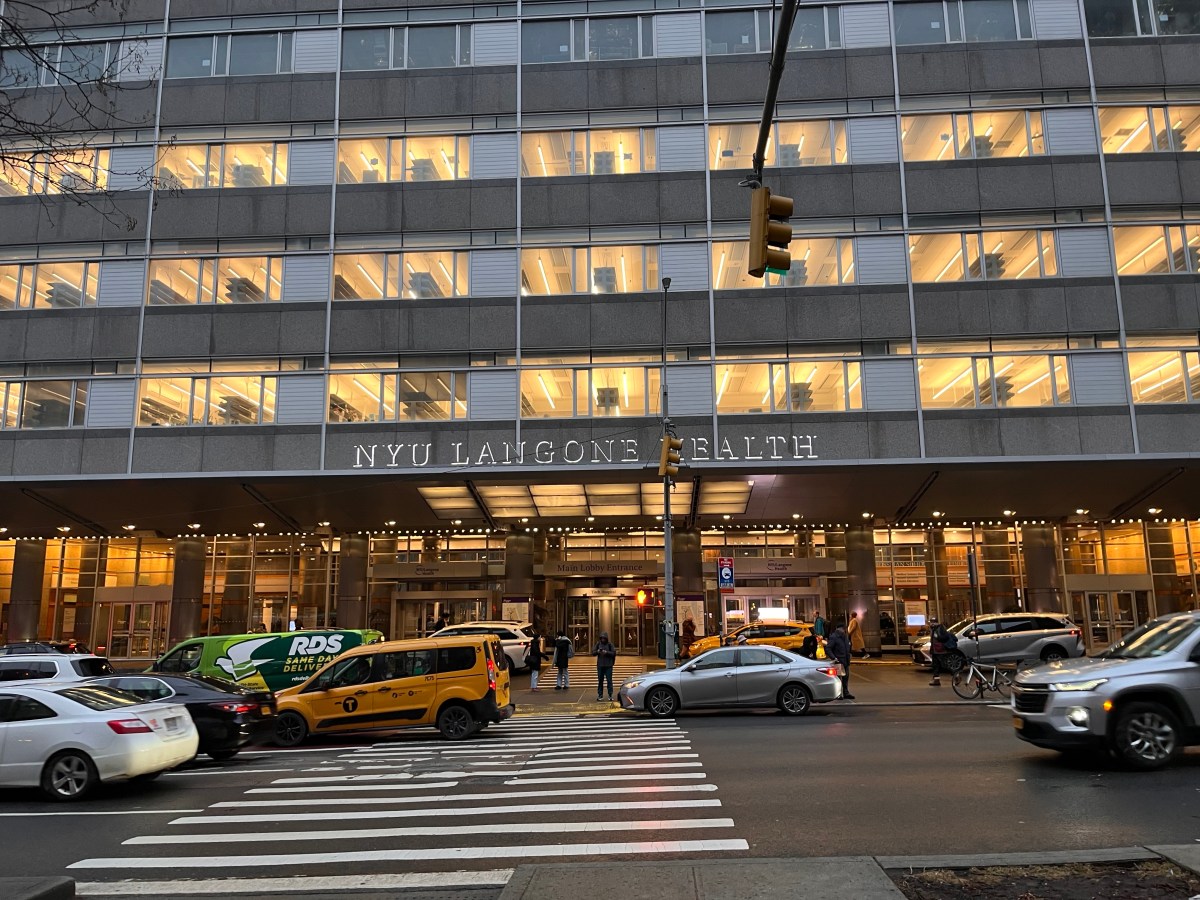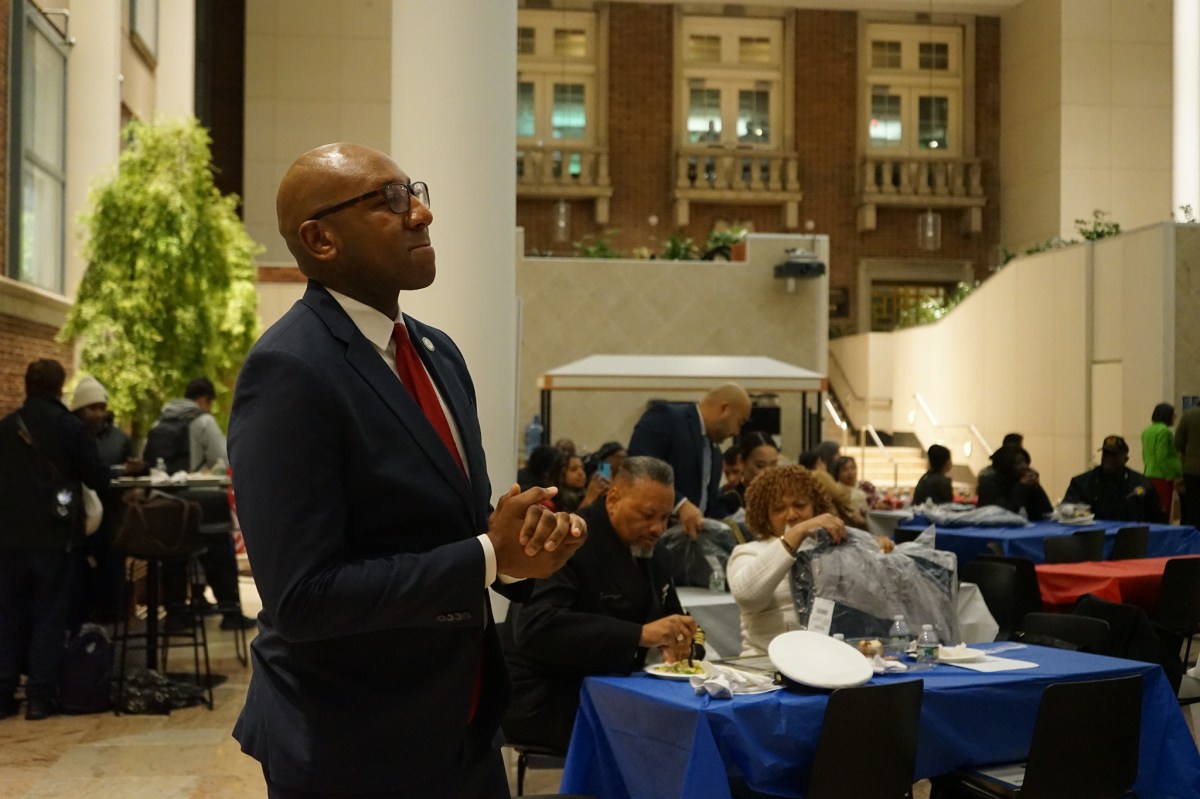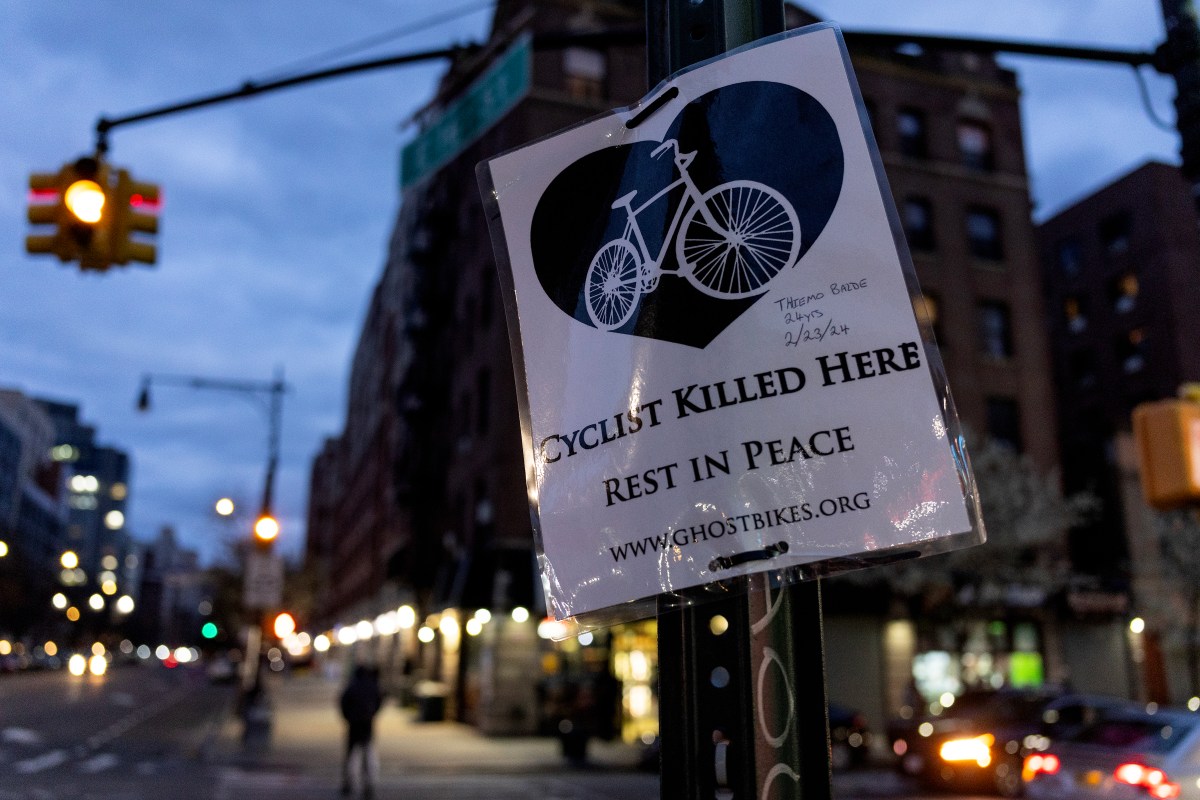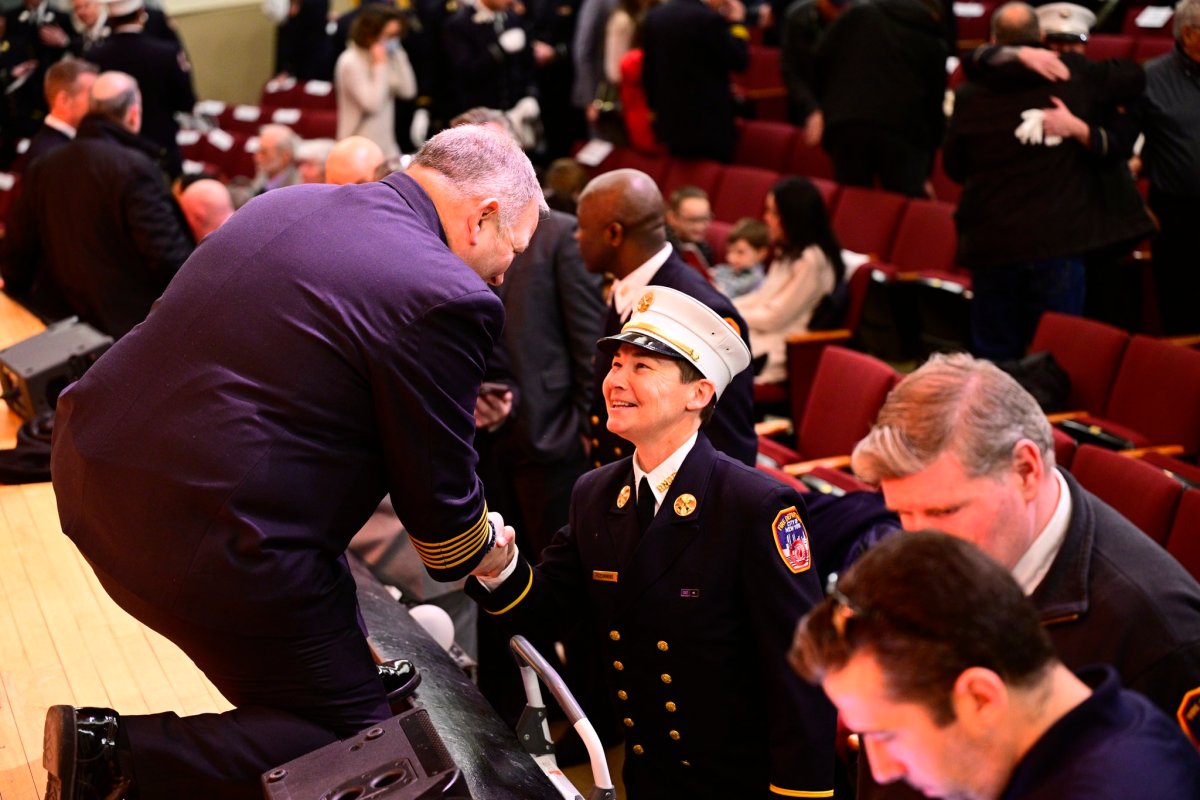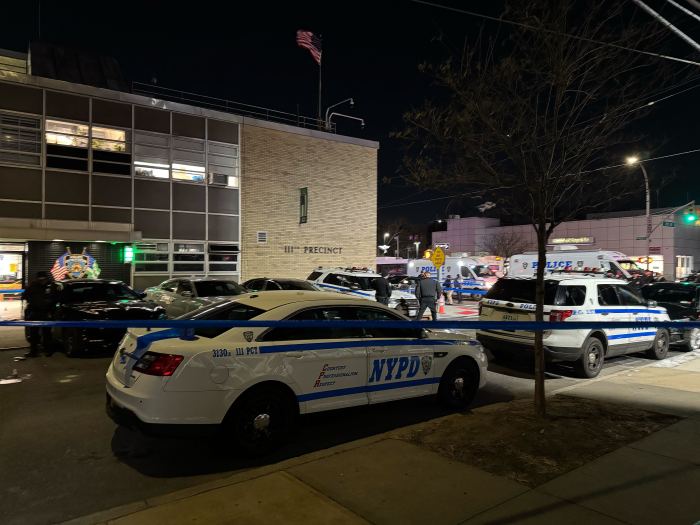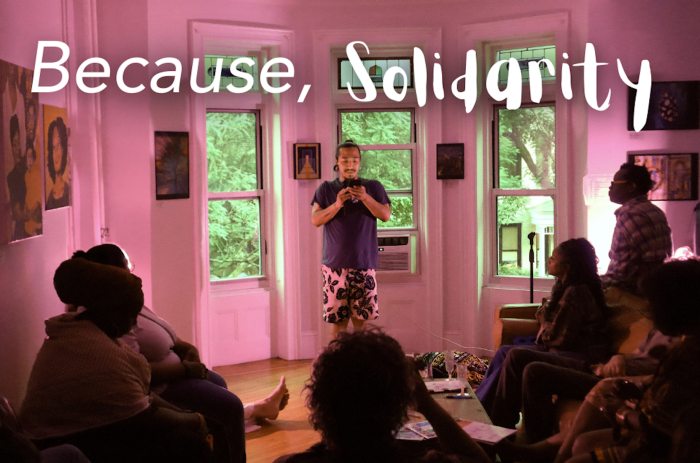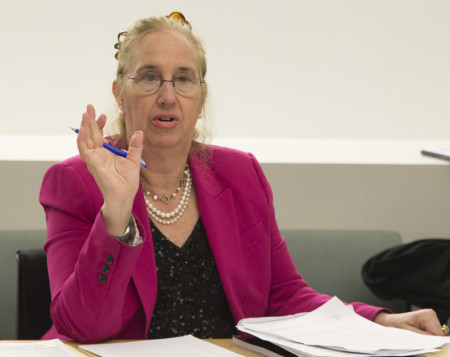
BY PAUL SCHINDLER | In a wide-ranging interview with editors and reporters from Manhattan Express and its sister publications, Borough President Gale Brewer offered only tepid support for the New York City Housing Authority’s plans to allow developers to build private market units on NYCHA land, detailed her first-hand observations about how intractable homelessness can be, warned tenants they need to be their own best advocates against unscrupulous landlords, and urged business owners to get involved with the borough’s 12 community boards.
And in a decidedly lighthearted moment during her one-hour session with journalists on December 17, Brewer voiced exasperation with New York’s feuding top two Democrats — her view of the ongoing contretemps between Governor Andrew Cuomo and Mayor Bill de Blasio essentially offered with a shrug of her shoulders.
As part of its effort to erase a 15-year decline in federal funding — which has resulted in the loss of $1.05 billion dollars in operating revenues and $1.1 billion in capital support and, if left unaddressed, would create a cumulative operating deficit of $2.5 billion over the next decade — NYCHA has announced a series of initiatives, the most controversial of which involves allowing private housing developers to build on open land that exists among the city’s public housing projects.
Some of these “infill” projects — which are projected to create as many as 10,000 new units of affordable housing — will be developed as 100 percent affordable housing developments, but others will be comprised of a mix of 50 percent affordable units, where families at or below 60 percent of the area median income could find units with rents equal to no more than 30 percent of their income, and 50 percent market rate units. The de Blasio administration came forward with the proposal for a mix of all-affordable and 50-50 developments in the wake of former Mayor Michael Bloomberg’s failure to advance a proposal for using an 80-20 market-affordable formula in infill projects.
In Brewer’s mind, de Blasio has not gone far enough to leave behind the Bloomberg approach.
“I prefer 100 percent affordable and less money for NYCHA,” she said. “To have 50-50 is a challenge. On the other hand, I understand NYCHA needs the money.”
For now, NYCHA is moving ahead most aggressively on the 50-50 approach, with two developments on the boards, one of them at the Holmes Towers, at First Avenue between 92nd and 93 Streets. Brewer said she has attended NYCHA presentations at Holmes, where residents raised concerns about everything from how much of the proceeds from the 50-50 development would directly benefit the Towers to whether a playground would be sacrificed to make way for the new housing and, if so, whether a new one would take its place elsewhere on the grounds.
Asked her thoughts about how the Holmes initiative is progressing, Brewer demurred, “I saw the original [NYCHA] plan’s numbers, and I saw that Holmes is a 50-50 site. That’s all I know.”
She added that when she spoke with residents voicing concerns about the presentations NYCHA had made, she was asked, “What if we just say no?” Brewer did not elaborate on the futility of that approach.
Asked about widespread though often anecdotal reports that homelessness is on the rise in New York, Brewer confirmed that the problem is largely one that affects Manhattan as opposed to the outer boroughs, an assertion earlier made by Police Commissioner Bill Bratton. Early in December, she joined a group of outreach workers trying to prevail on homeless people to accept shelter for the night in a shift that ran into the early morning hours. Older people, she reported, were the most resistant to accepting the pleas of those offering help, and at times discussions became heated.
“Let me tell you the problem,” she said. “These people are hard.”
Hard is also a way in which Brewer described the challenges that too many Manhattan tenants face from landlords eager to drive them from their homes in order to make a killing on the property. The biggest threats, she said, are vulnerable elderly tenants who fear they cannot win against a determined landlord.
“Particularly for the seniors, a knock on the door and they freak out,” Brewer said. “They take the money and leave.”
The Department of Buildings, she said, is not up to the task of adequately protecting tenants.
“I don’t know how much is incompetence and how much is short-staffed,” she said, “but we don’t have enough enforcement.”
A new legal services program for tenants initiated by de Blasio will add $12.3 million in expenditures for attorneys, bringing total city spending on anti-eviction efforts to $60 million, but, said Brewer, “It’s just never enough.”
“You need something on the ground, almost 24/7, in terms of lawyers and organizers,” she continued. “If you don’t have that, no matter how good DOB is, that person is still gonna get nervous and is still going to leave. That’s my experience.”
In the absence of a city funding to flood the zone, Brewer said that tenants organizing themselves is the best solution.
“My experience for many years has been when you have a building you can organize, you have a chance,” she said. “But as individuals in different buildings, you get the short end of the stick.”
If business interests, in the form of landlords, hold too much sway in the housing market, Brewer believes that businesses — particularly small business owners — are not sufficiently engaged in the community board process that can have significant input on land use decisions and all manner of business permitting.
Small business owners, she acknowledged, are often unhappy with the resistance they meet at the local community board when they seek approval on matters like liquor licenses. However, tension between local businesses and the boards — of which there are a dozen in Manhattan, with appointments split between Brewer and local City Council members — need not be a daily fact of life, she insisted.
“We need more businesspeople to be on these boards,” she said. “I know how hard it is. I put businesspeople on Community Board 7 and Community Board 4 when I was in the City Council, but it’s hard. They have to be in their business, so they got off because they just didn’t have the time. This is a real problem.”
But owners of small businesses often have the know-how needed by a community board deliberating an issue. “Hey, that’s not actually how it works,” Brewer said a business owner can advise fellow neighborhood residents.
Brewer is accepting applications for community board appointments through January 29 and urges business owners and other interested residents to apply at manhattanbp.nyc.gov.
On one starkly political question, Brewer declined to take sides, offering instead a plague on both their houses sort of response. Asked what she thought of the ongoing battles between Cuomo and de Blasio, she said, “These two people — I don’t know what to do with them.” Political infighting is all well and good, she said, except when it hurts the voters they are elected to serve.




